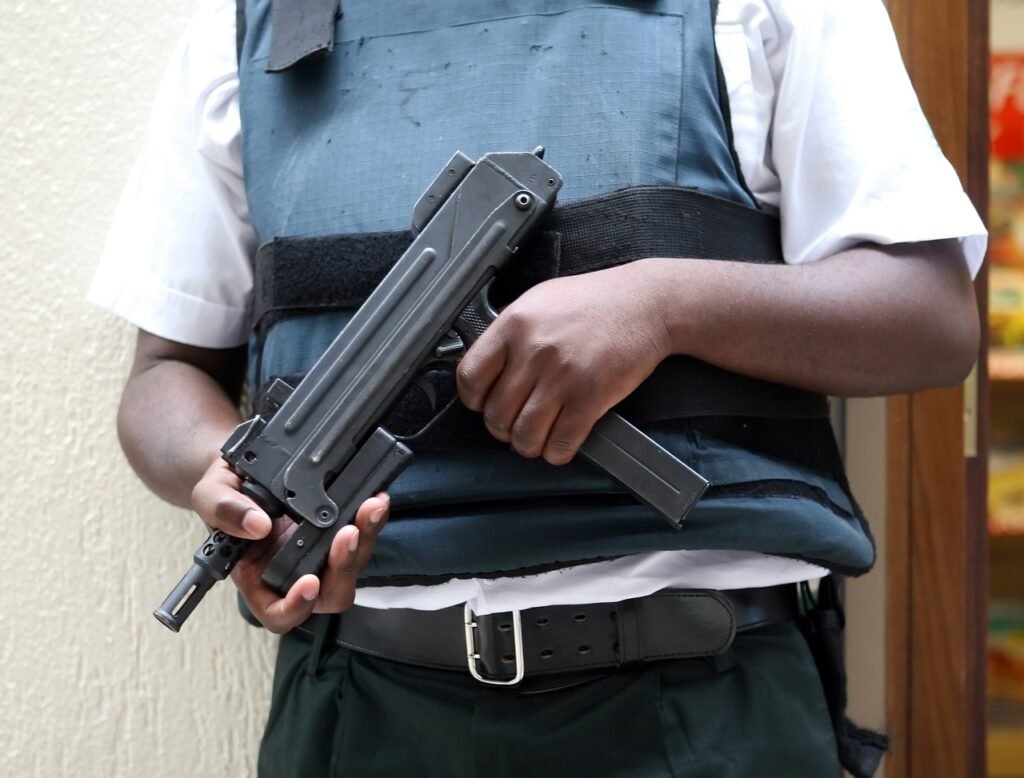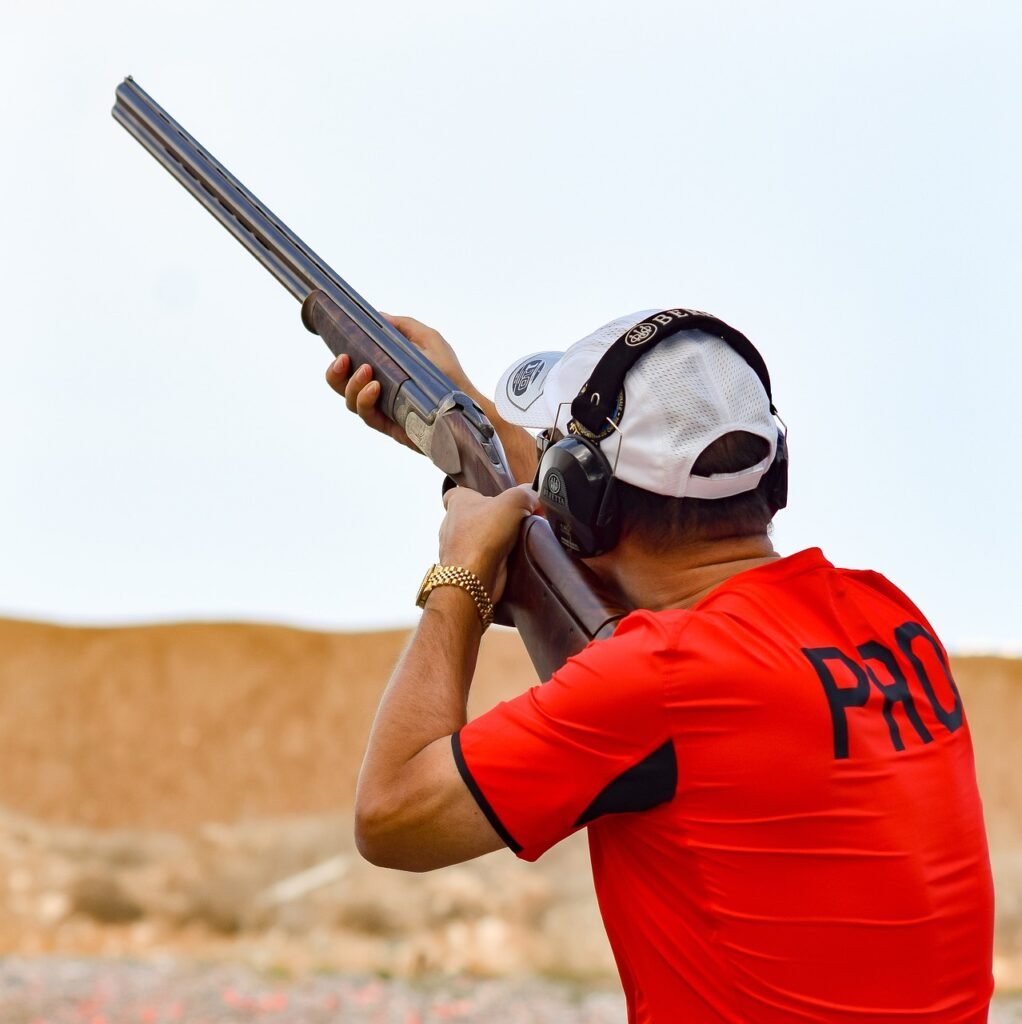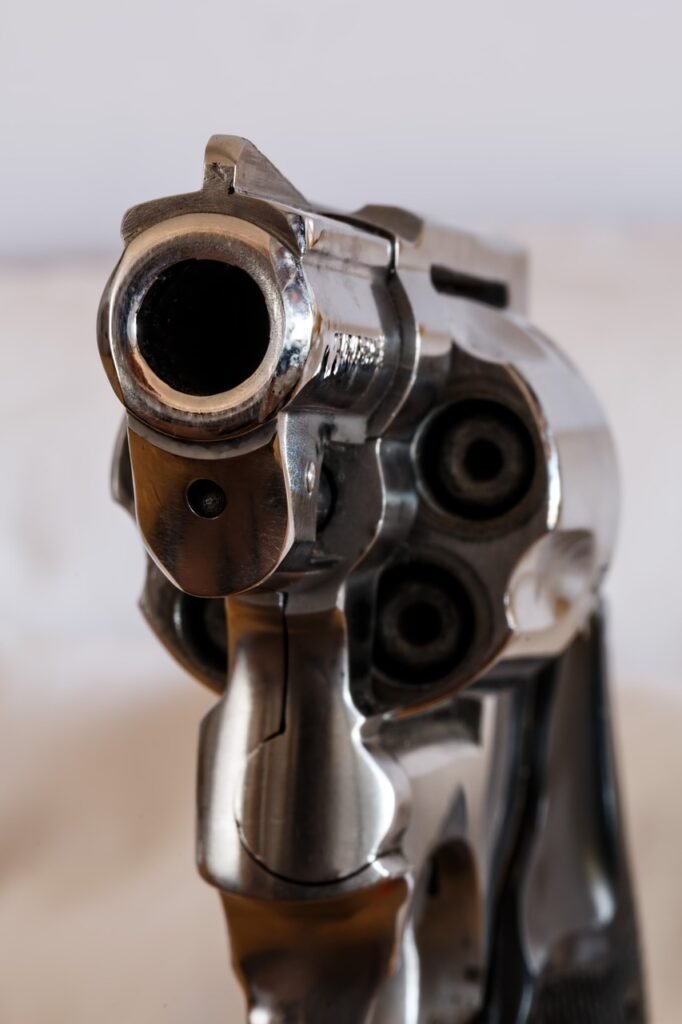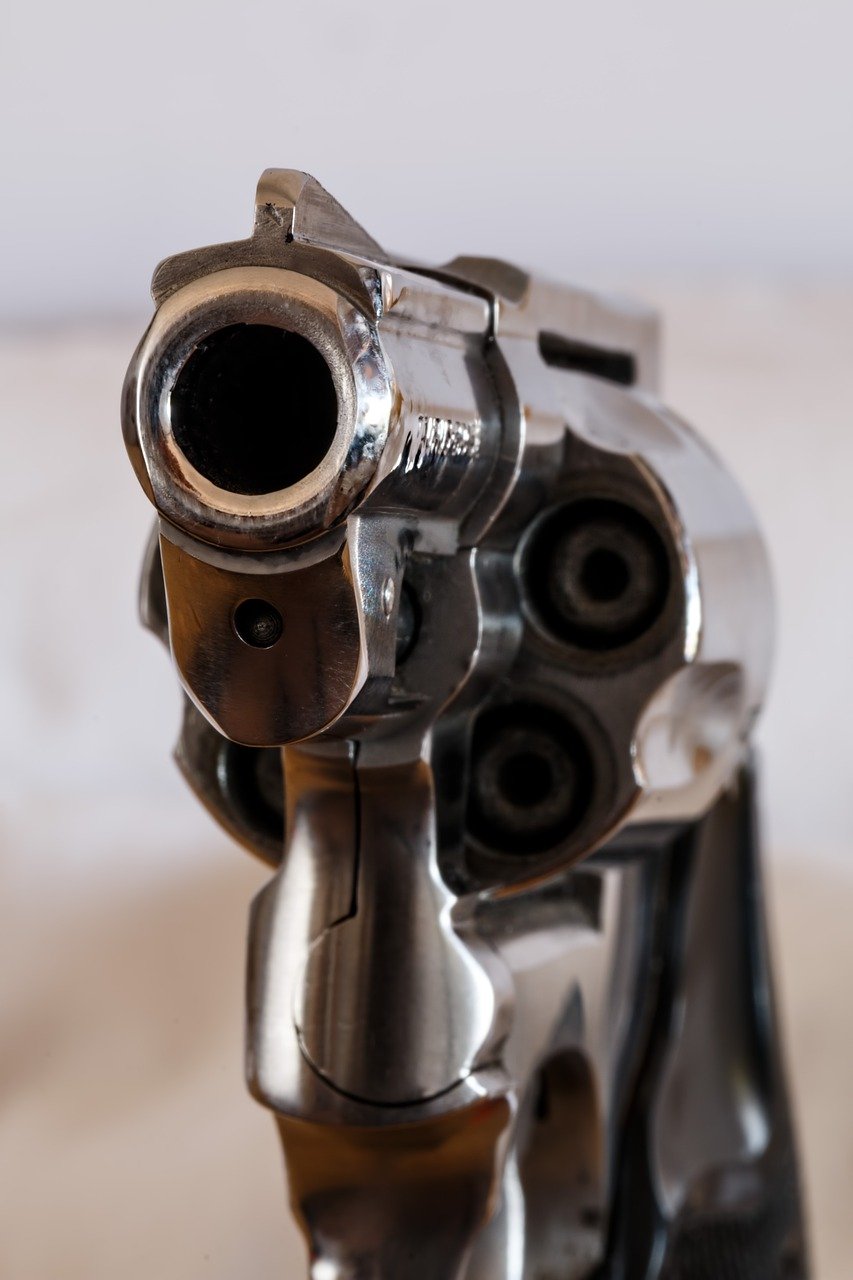As a responsible gun safe owner, it is crucial to understand and fulfill our ethical responsibilities. Owning a firearm entails more than just knowing how to operate it safely; it also involves ensuring that the weapon is securely stored and handled with utmost care. By taking these ethical responsibilities seriously, we contribute to the overall safety of our communities and promote responsible gun ownership. In this article, we will explore these ethical responsibilities in depth and discuss how they play a vital role in maintaining a safe environment.

This image is property of pixabay.com.
Secure Storage and Access Control
Gun ownership comes with significant ethical responsibilities, such as ensuring the safe storage of firearms and implementing access control measures. Investing in a high-quality gun safe is the best way to protect your firearms from theft or unauthorized access. A gun safe provides a secure and dedicated space for storing your firearms, ammunition, and other valuable items. When choosing a gun safe, prioritize features such as robust construction, fire resistance, and tamper-proof locks.
Once you have chosen the right gun safe, it is crucial to select an appropriate location for its installation. Ideally, the safe should be placed in a discrete yet easily accessible area. Consider factors like convenience, visibility, and potential vulnerabilities. Ensure that the safe is not easily visible from windows or other external vantage points, as this could increase the risk of theft.
Properly securing the gun safe is vital to prevent unauthorized access. Anchoring the safe to a solid surface, such as a concrete floor or wall, adds an extra layer of protection. This prevents burglars from stealing the entire safe or easily moving it to another location. Additionally, consider concealing the safe with furniture or other items to further deter potential thieves.
Implementing access control measures is essential to ensure that only authorized individuals have access to your firearms. Regularly changing safe lock combinations is an effective way to maintain security. Avoid easily guessable combinations like birthdays or anniversaries, and opt for complex codes that are unique to you. For enhanced convenience and security, consider using biometric or keyless entry systems. These systems rely on fingerprints, keycards, or electronic passcodes, making unauthorized access more difficult. It is also recommended to implement intrusion detection systems, such as alarms or motion sensors, to immediately alert you in case of a breach.
Firearm Safety and Handling
A crucial aspect of responsible gun ownership is ensuring the proper handling and safekeeping of firearms. Acquiring proper firearms training is vital for everyone who handles firearms, regardless of their experience level. This training equips individuals with the knowledge and skills necessary for safe handling, storage, and operation. Seek out certified instructors or reputable training organizations to receive comprehensive firearms training.
When storing firearms, it is essential to keep them unloaded. Unloaded firearms significantly reduce the risk of accidental discharge and promote safe handling practices. Store ammunition separately from firearms in a secured location, such as a locked cabinet or dedicated ammunition safe. This separation acts as an added safety measure and helps prevent unauthorized access to both firearms and ammunition.
Using trigger locks and cable locks is an additional safety measure to prevent unauthorized access and accidental discharges. Trigger locks block the trigger mechanism, rendering the firearm inoperable until the lock is removed. Cable locks secure the firearm by obstructing the action or preventing the insertion of a magazine. These locks are inexpensive yet effective tools that provide an extra layer of security, especially when storing firearms in a gun safe.
Educating household members about firearm safety is crucial to prevent accidents and ensure responsible gun ownership. Teach them about the potential dangers associated with firearms and the importance of following safety protocols. Emphasize the importance of never handling firearms without proper supervision or authorization. Implement clear rules, such as storing firearms securely and discussing the importance of never touching a firearm without explicit permission.

This image is property of pixabay.com.
Preventing Unauthorized Access
Preventing unauthorized access to firearms is an ethical obligation of every responsible gun owner. Regularly changing safe lock combinations is an effective method to maintain security. By changing the combination periodically, you reduce the chances of someone guessing the code or gaining unauthorized access. Make sure to follow the manufacturer’s instructions on how to change the lock combination correctly.
When choosing a new combination, avoid easily guessable codes that could compromise the security of your firearms. Steer clear of obvious choices like birthdays, addresses, or repetitive digit patterns. Instead, choose combinations that are unique and only known to you or trusted individuals who require access to the firearms.
Consider using biometric or keyless entry systems for your gun safe. Biometric systems rely on fingerprint or retinal scan technology, providing secure access control. Keyless entry systems utilize electronic passcodes that can be changed regularly, ensuring only authorized individuals can gain access. These advanced access control measures make it exceedingly difficult for unauthorized individuals to open your gun safe.
Implementing intrusion detection systems enhances the overall security of your firearms. Alarms, motion sensors, or security cameras within the vicinity of the gun safe can immediately alert you to any unauthorized attempts to access the firearms. Regularly monitor and restrict access to the area where the firearms are stored, ensuring that only authorized individuals can approach the gun safe.
Reporting Lost or Stolen Firearms
In the unfortunate event that firearms are lost or stolen, responsible gun owners have an ethical obligation to report such incidents immediately. Maintaining an accurate inventory of firearms is crucial to determine if any items are missing. Take regular inventory and ensure that it aligns with your records. If you discover any discrepancies or missing firearms, promptly report them to the authorities.
When reporting lost or stolen firearms, provide detailed descriptions to aid law enforcement in their investigation. Include information such as make, model, caliber, and any unique markings or modifications. Remember to include the firearm’s serial number, as this serves as a vital identifying feature. Cooperation with law enforcement by providing accurate information and promptly reporting the incident can assist in recovering the lost or stolen firearms and prevent them from falling into the wrong hands.
Assisting law enforcement in the investigation is another way responsible gun owners fulfill their ethical responsibilities. Provide any additional information or evidence that may help in recovering the firearms, such as surveillance footage, witness statements, or any suspicious activities leading up to the incident. By actively participating and cooperating with law enforcement, you contribute to the overall safety of your community.

This image is property of pixabay.com.
Proper Transfer of Firearms
When it comes to transferring firearms, responsible gun owners must adhere to legal requirements and ensure that transfers are conducted safely and responsibly. Conducting background checks for buyers is one crucial step in preventing firearms from falling into the wrong hands. Background checks verify the buyer’s eligibility to legally possess a firearm, helping to prevent sales to individuals with a criminal history or mental health issues.
Verifying the legality of transfers, particularly in private sales, is essential. Understand the laws and regulations governing private firearm transfers in your jurisdiction. In some areas, private sales are subject to background checks or require documentation to ensure compliance. Familiarize yourself with any local or state-specific requirements to ensure all transfers are conducted legally.
Documenting transfers through legal channels is another important aspect of responsible firearm ownership. Properly executed bills of sale or transfer forms provide a clear record of the transfer, including the identities of the parties involved and specifics of the firearms being transferred. This documentation not only ensures compliance with local laws but also helps establish a chain of custody, which may be essential in case the firearm is later involved in a crime.
Ensure compliance with local laws and regulations regarding firearms by staying informed about any changes or updates. Laws pertaining to firearms can vary significantly from one jurisdiction to another. By staying up-to-date with the latest legislation, you can ensure that your firearm ownership remains within legal boundaries and contributes to a safer community.
Avoid transferring firearms to prohibited individuals under any circumstances. This includes individuals with a history of domestic violence, felony convictions, or those who are under legal age. Conduct the necessary background checks and follow legal procedures to prevent firearms from ending up in the wrong hands. By responsibly transferring firearms, you contribute to the overall safety and well-being of society.
Promoting Responsible Gun Ownership
As a responsible gun owner, it is not only important to practice safe handling and storage of firearms yourself but also to promote responsible gun ownership within your community. Educating others about gun safety is a powerful way to raise awareness and ensure that safe practices are widely adopted. Share your knowledge and experiences with friends, family, and neighbors, emphasizing the importance of safety protocols.
Encouraging safe handling and storage practices is crucial to fostering responsible gun ownership. Emphasize the importance of storing firearms securely, using trigger locks, and practicing safe handling techniques. By fostering a culture of responsible gun ownership, you can help prevent accidents, reduce the risk of firearms falling into the wrong hands, and create a safer community.
Supporting community programs and initiatives that promote responsible gun ownership is another way to contribute positively. Organizations offering firearms safety training, community outreach, or initiatives focusing on mental health and firearm access can benefit from your involvement. Whether it is volunteering, donating, or simply spreading the word, your support can make a meaningful impact.
Participating in gun safety training and events not only enhances your own knowledge and skills but also signals your commitment to responsible gun ownership. Attend training sessions, workshops, or seminars offered by local organizations or law enforcement agencies. By actively engaging in these activities, you demonstrate your dedication to safety and serve as a positive role model for others.
Advocating for Sensible Gun Control Measures
Responsible gun owners recognize the importance of advocating for sensible gun control measures that prioritize safety without compromising law-abiding citizens’ rights. Supporting legislation for universal background checks is a key step in ensuring that all individuals seeking to acquire firearms undergo thorough background screenings. Universal background checks can help prevent firearms from falling into the wrong hands and provide an additional layer of security.
Pushing for safe storage laws is another means to promote responsible firearm ownership. Safe storage laws require gun owners to keep their firearms securely stored when not in use. This legislation helps prevent unauthorized access, reducing the risk of firearm accidents, theft, or misuse. By advocating for safe storage laws, responsible gun owners align with the goal of maximizing safety and preventing tragic incidents.
Participating in grassroots movements that prioritize gun safety is an impactful way to effect change. Join local or national organizations dedicated to responsible gun ownership, gun violence prevention, or firearm safety. By participating in demonstrations, contacting legislators, or spreading awareness through social media, you contribute to the ongoing conversation and promote gun safety as an essential priority.
Engaging in civil discourse surrounding gun safety is crucial for establishing meaningful dialogue and finding common-ground solutions. By initiating respectful conversations with individuals who may have differing views, you can foster understanding and promote constructive discussions. By approaching these conversations with a friendly and open tone, you are more likely to create opportunities for mutual respect and promote gun safety concerns effectively.
Checking and Maintaining the Gun Safe
Ensuring the proper checking and maintenance of your gun safe is essential to guarantee its continued effectiveness in safeguarding your firearms. Regularly inspect the safe’s condition to identify any signs of wear, damage, or vulnerabilities. Check for any loose hinges, malfunctioning locks, or structural issues that may compromise the security of the safe. Promptly address any concerns or seek professional assistance if needed.
Cleaning and lubricating locks and hinges regularly aids in maintaining the safe’s functionality. Dust, dirt, or debris accumulation can hinder the locking mechanism. Use a soft cloth or brush to remove any debris, and apply lubrication to ensure smooth and reliable operation. Regular cleaning and lubrication extend the lifespan of the locks and hinges, promoting longevity and reliability.
Most modern gun safes are equipped with electronic locks that rely on batteries for power. It is important to replace the batteries regularly to prevent lockouts or malfunctions. Set a schedule to replace the batteries at least once a year or based on the manufacturer’s recommendations. This simple maintenance practice ensures uninterrupted access to your firearms while preserving the safe’s security features.
Periodically test the safe’s security features to assess their functionality and reliability. This includes testing the lock combinations, biometric scanners, keyless entry systems, or any other access control measures present in your gun safe. Testing these features regularly provides peace of mind and allows you to identify any issues or malfunctions that may require attention.
If you encounter any issues or concerns with your gun safe that are beyond your expertise, seek professional assistance from a qualified locksmith or safe specialist. These professionals possess the necessary knowledge and experience to diagnose and resolve any technical or mechanical problems. Putting safety first, rely on expert assistance whenever needed to ensure the overall security of your firearms.
Proper Disposal of Unwanted Firearms
As a responsible gun owner, it is essential to know and understand the proper procedures for disposing of unwanted firearms. Research local laws and regulations regarding firearm disposal to ensure compliance. Laws regarding disposal can vary, so familiarize yourself with the specific requirements in your area.
One option for disposing of unwanted firearms is to surrender them to local law enforcement. Contact your local police department or law enforcement agency to inquire about their firearm disposal programs. They can provide guidance on the necessary steps to follow, including documentation and drop-off locations.
Authorized firearm disposal programs, such as buyback initiatives or gun amnesty events, offer another avenue for responsible disposal. These programs are often organized by law enforcement agencies or municipalities, providing an opportunity for individuals to safely and responsibly dispose of unwanted firearms. Depending on the program, you may be eligible to receive compensation for surrendering the firearms.
Before disposing of unwanted firearms, it is crucial to render them inoperable or disable them to prevent potential misuse. This can be done by removing essential components or parts, permanently altering the firearm’s functionality, or utilizing certified firearm destruction services. Consult local law enforcement or experts in firearm alteration or destruction for guidance on the best methods to ensure the firearms are permanently disabled.
Under no circumstances should you sell or give unwanted firearms to unknown individuals. Transferring firearms to strangers without proper background checks or documentation can contribute to illegal activities and firearms falling into the wrong hands. Always follow legal and responsible avenues for disposing of firearms to promote overall safety and prevent potential harm.
Being a Responsible Gun Owner
Being a responsible gun owner encompasses a range of ethical considerations, including knowing and understanding firearms laws, practicing safe and responsible gun handling, and serving as a positive role model for others. Educate yourself about federal, state, and local laws governing firearms ownership, storage, transfer, and use. Stay updated on any changes or new regulations that may impact your responsibilities as a gun owner.
Practicing safe and responsible gun handling is the foundation of responsible gun ownership. Always treat firearms as if they are loaded, even when they are not. Follow the basic rules of firearms safety, such as keeping the muzzle pointed in a safe direction, keeping your finger off the trigger until ready to shoot, and being aware of your target and what is beyond it. These simple yet crucial practices significantly reduce the risk of accidents and promote safe gun handling.
Exercising caution and responsibility at all times is paramount for responsible gun ownership. Be mindful of where and how you store your firearms, ensuring they are inaccessible to unauthorized individuals. When transporting firearms, use secure cases or holsters that prevent accidental discharges. Never handle firearms under the influence of drugs or alcohol, as impaired judgment can lead to tragic consequences.
Serving as a positive role model for others is a vital aspect of responsible gun ownership. By demonstrating safe and responsible gun handling practices, educating others, and advocating for gun safety, you can positively influence those around you. Encourage open dialogue, share your knowledge, and lead by example to promote a culture of responsible gun ownership within your community.
In conclusion, ethical responsibilities as a gun safe owner encompass secure storage and access control, firearm safety and handling, preventing unauthorized access, reporting lost or stolen firearms, proper transfer of firearms, promoting responsible gun ownership, advocating for sensible gun control measures, checking and maintaining the gun safe, proper disposal of unwanted firearms, and being a positive role model. By fulfilling these responsibilities, you contribute to the overall safety and well-being of your community and promote responsible gun ownership. Remember, responsible gun ownership is a commitment that requires continuous effort and dedication.
